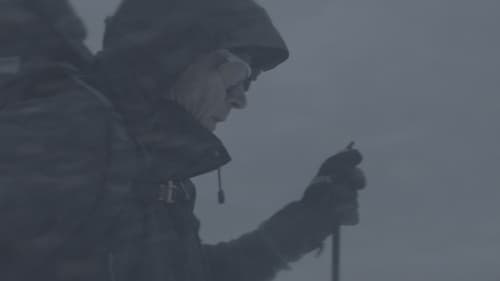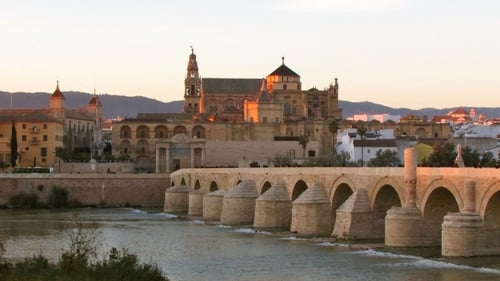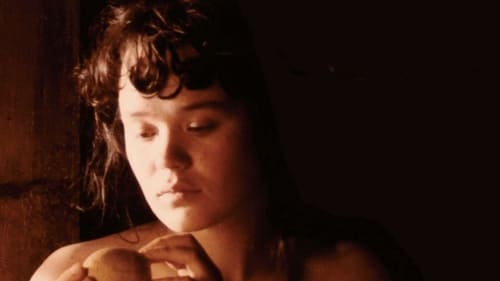Markku Lehmuskallio
Nacimiento : 1938-12-31, Rauma, Finland

Screenplay
Markku Lehmuskallio has devoted a large part of his documentary work to the indigenous people of the Arctic Circle. In this latest film, co-directed with his son Johannes Lehmuskallio, he composes a fascinating poetic ethnography inspired by the singing, dancing, forms of contemporary existence and, above all, the vital breath of these nomad communities mistreated by History.

Editor
Markku Lehmuskallio has devoted a large part of his documentary work to the indigenous people of the Arctic Circle. In this latest film, co-directed with his son Johannes Lehmuskallio, he composes a fascinating poetic ethnography inspired by the singing, dancing, forms of contemporary existence and, above all, the vital breath of these nomad communities mistreated by History.

Cinematography
Markku Lehmuskallio has devoted a large part of his documentary work to the indigenous people of the Arctic Circle. In this latest film, co-directed with his son Johannes Lehmuskallio, he composes a fascinating poetic ethnography inspired by the singing, dancing, forms of contemporary existence and, above all, the vital breath of these nomad communities mistreated by History.

Producer
Markku Lehmuskallio has devoted a large part of his documentary work to the indigenous people of the Arctic Circle. In this latest film, co-directed with his son Johannes Lehmuskallio, he composes a fascinating poetic ethnography inspired by the singing, dancing, forms of contemporary existence and, above all, the vital breath of these nomad communities mistreated by History.

Director
Markku Lehmuskallio has devoted a large part of his documentary work to the indigenous people of the Arctic Circle. In this latest film, co-directed with his son Johannes Lehmuskallio, he composes a fascinating poetic ethnography inspired by the singing, dancing, forms of contemporary existence and, above all, the vital breath of these nomad communities mistreated by History.

Thanks
When two former top orienteers end up in a snowstorm in Lapland wilderness, they face an impossible orienteering task: how to reach your destination when you can't tell earth from sky?

Editor

Producer

Writer

Director

Director
In the 1860’s Alaska and Finland are simultaneously parts of the Russian Empire. A Finnish mining engineer Simon buys an Alaskan native American girl and decides to bring her to Finland. The child, Tsamo, is baptized and Simon starts to teach her European manners. Tsamo thinks she’s married to Simon and acts accordingly, but when Simon marries a lady of his own age and class, she gets confused. Simon is forced to send the girl away and the battle over Tsamo’s identity takes complicated turns.

Editor
A fertilized egg develops into a human. He is born, lives his life and eventually dies. Human life is a journey, the path we take from birth to death. The film is a story about the journey of Minja's life. At the end of the film, there is a dedication to Minja, Minja’s mother and grandmother. There are no other texts at the end of the film. The film also lacks a director as it is cut from existing film material. The Creator has directed Minja's life.

Director
A little Nenets girl Neko is taken against her will from her home to a boarding school in a remote Russian village. Forced to adapt to a foreign culture and new customs, Neko rebels and decides to flee, hoping to get back to her family and old habits.

Editor
Nedarma (Travelling) is one of several documentary features co-directed by Anastasia Lapsui and Markku Lehmuskallio that portray the daily lives of the Nenets, Lapsui’s tribe based in the northern tundra of Siberia. The film invokes Nenets cosmology as a way of leading into a filmic structure that portrays the arc of life from birth to death.

Writer
Nedarma (Travelling) is one of several documentary features co-directed by Anastasia Lapsui and Markku Lehmuskallio that portray the daily lives of the Nenets, Lapsui’s tribe based in the northern tundra of Siberia. The film invokes Nenets cosmology as a way of leading into a filmic structure that portrays the arc of life from birth to death.

Director of Photography
Nedarma (Travelling) is one of several documentary features co-directed by Anastasia Lapsui and Markku Lehmuskallio that portray the daily lives of the Nenets, Lapsui’s tribe based in the northern tundra of Siberia. The film invokes Nenets cosmology as a way of leading into a filmic structure that portrays the arc of life from birth to death.

Director
Nedarma (Travelling) is one of several documentary features co-directed by Anastasia Lapsui and Markku Lehmuskallio that portray the daily lives of the Nenets, Lapsui’s tribe based in the northern tundra of Siberia. The film invokes Nenets cosmology as a way of leading into a filmic structure that portrays the arc of life from birth to death.

Director
A look into the recent history of the Chukchi people.

Director
An elderly Nenets woman in teepee on northern Russia's Yamal Peninsula recounts her early life betrothed to a deity for the entertainment of a blind young girl. In the Nenets culture, a girl child can be married to holiest of holies, Num, before or after her birth. Lonely old Numd' Syarda (which means, literally, 'tied to Num') entertains the blind young Ilne ('giver of life') with stories of how she became one of these chosen few.

Director of Photography
A documentary on the experiences of the Nubetya Yaptiks nomadic family in the Yamal Peninsula, Eastern Siberia, from 1992 to 2001.

Editor
A documentary on the experiences of the Nubetya Yaptiks nomadic family in the Yamal Peninsula, Eastern Siberia, from 1992 to 2001.

Writer
A documentary on the experiences of the Nubetya Yaptiks nomadic family in the Yamal Peninsula, Eastern Siberia, from 1992 to 2001.

Director
A documentary on the experiences of the Nubetya Yaptiks nomadic family in the Yamal Peninsula, Eastern Siberia, from 1992 to 2001.

Editor
An anthology of stories about the indigenous nomadic people of the Russian tundra under modern Communist rule. Finland's submission for the Academy Award for Best Foreign Language Film in 2000

Director
An anthology of stories about the indigenous nomadic people of the Russian tundra under modern Communist rule. Finland's submission for the Academy Award for Best Foreign Language Film in 2000

Editor
This Finnish documentary film directed, written, produced and shot by Markku Lehmuskallio is the first part of a documentary trilogy about the Nenets people. It's a folkloric documentary describing the traditional nomadic life of the Nenets on the Yamal Peninsula. It includes Nenets songs sung by Anastasia Lapsui and her mother Maria Lapsui. The film was the first film collaboration of Markku Lehmuskallio and Anastasia Lapsui.

Cinematography
This Finnish documentary film directed, written, produced and shot by Markku Lehmuskallio is the first part of a documentary trilogy about the Nenets people. It's a folkloric documentary describing the traditional nomadic life of the Nenets on the Yamal Peninsula. It includes Nenets songs sung by Anastasia Lapsui and her mother Maria Lapsui. The film was the first film collaboration of Markku Lehmuskallio and Anastasia Lapsui.

Producer
This Finnish documentary film directed, written, produced and shot by Markku Lehmuskallio is the first part of a documentary trilogy about the Nenets people. It's a folkloric documentary describing the traditional nomadic life of the Nenets on the Yamal Peninsula. It includes Nenets songs sung by Anastasia Lapsui and her mother Maria Lapsui. The film was the first film collaboration of Markku Lehmuskallio and Anastasia Lapsui.

Writer
This Finnish documentary film directed, written, produced and shot by Markku Lehmuskallio is the first part of a documentary trilogy about the Nenets people. It's a folkloric documentary describing the traditional nomadic life of the Nenets on the Yamal Peninsula. It includes Nenets songs sung by Anastasia Lapsui and her mother Maria Lapsui. The film was the first film collaboration of Markku Lehmuskallio and Anastasia Lapsui.

Director
This Finnish documentary film directed, written, produced and shot by Markku Lehmuskallio is the first part of a documentary trilogy about the Nenets people. It's a folkloric documentary describing the traditional nomadic life of the Nenets on the Yamal Peninsula. It includes Nenets songs sung by Anastasia Lapsui and her mother Maria Lapsui. The film was the first film collaboration of Markku Lehmuskallio and Anastasia Lapsui.

Self - Narrator (voice)
This Finnish documentary film directed, written, produced and shot by Markku Lehmuskallio is the first part of a documentary trilogy about the Nenets people. It's a folkloric documentary describing the traditional nomadic life of the Nenets on the Yamal Peninsula. It includes Nenets songs sung by Anastasia Lapsui and her mother Maria Lapsui. The film was the first film collaboration of Markku Lehmuskallio and Anastasia Lapsui.

Director
1985 Finnish film.

A Finnish adaptation of Notes from Underground by Fyodor Dostoevsky.

Director
A film about herder Niila and Sami environment in the time of change and plight. First partly Saami language fiction film in Finland.

Director of Photography
Based on a novel by the late Finnish writer Timo Mukka, this simple story focuses on what happens when Milka (Irma Huntus), a girl barely out of childhood, gets pregnant by Ojanen (Matti Turunen) a rustic fieldhand. Her own mother had been hoping to marry Ojanen, and her daughter's pregnancy turns their lives around. Set in the Lapp country of northern Finland, the scenery is breathtaking, made even more so by the isolation of the region. A sense of natural solitude is underscored by a slow-moving dialogue interspersed with long silences, and the connection between nature and the dialogue is underscored as the young Milka recites poetry while out in the countryside. The fate of Milka and her mother, however, is connected to the decision that Ojanen makes at the end.

Producer
Película sobre un matrimonio y un hombre viejo que vive en una remota parte de Finlandia. El joven marido sale a cazar, pero sólo para mantenerse a sí mismo y su esposa, no para acabar con las hordas de los animales.

Director
Película sobre un matrimonio y un hombre viejo que vive en una remota parte de Finlandia. El joven marido sale a cazar, pero sólo para mantenerse a sí mismo y su esposa, no para acabar con las hordas de los animales.

Director of Photography
Based on a true story about the so called 1932 Horse Rebellion in Nivala, Finland. The decision to put down a sick horse owned by a poor farmer rises the farmers in open rebellion against the authorities.

Director of Photography
Short documentary by Markku Lehmuskallio.

Writer
Short documentary by Markku Lehmuskallio.

Director
Short documentary by Markku Lehmuskallio.





























